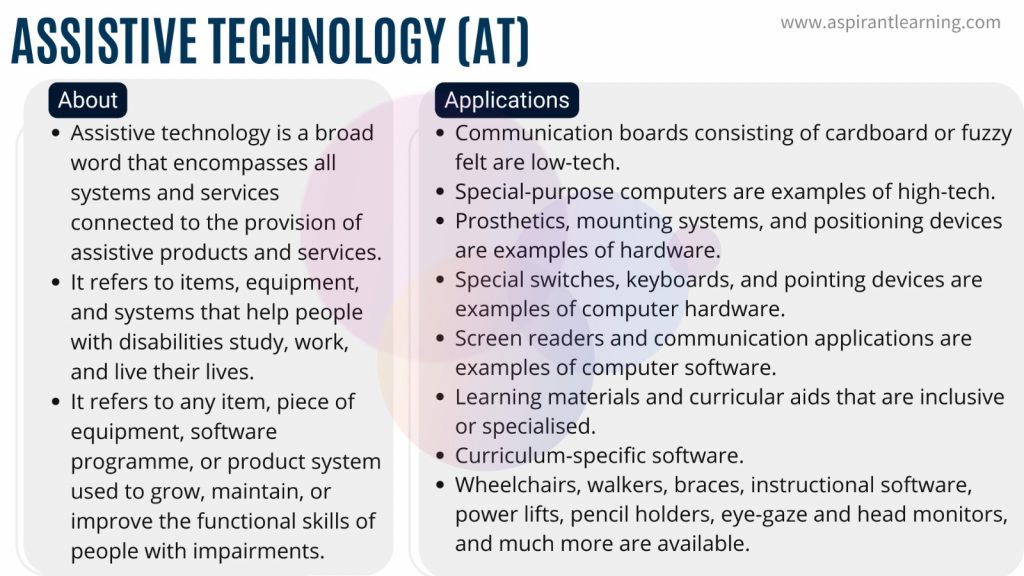News Highlight
Making the Digital Ecosystem Disabled Friendly: The Vidhi Centre for Legal Policy published research on software application popularity in India.
Key Takeaway
- The 2011 Census estimate of 2.21% of India’s population being disabled is a severe underestimation.
- The World Health Organization estimates that approximately 16% of the global population is impaired.
- If the figure is expanded to India, it equates to at least 192 million impaired persons.
- The Vidhi Centre for Legal Policy is a legal research think tank.
- The group just published research on software application popularity in India.
- In addition, the report’s title is “Making the Digital Ecosystem Disabled Friendly“.
- According to the group, WhatsApp is the most accessible app for impaired people.
- The organisation evaluated applications in categories such as e-commerce, online payments, transport, food delivery, etc.
- Furthermore, the report was generated based on the Web Content Accessibility Guidelines (WCAG).
Assessment of the Report
- A report was developed for an evidence-based assessment of the state of technology and its accessibility for the impaired segment.
- The study looked at ten popular apps from five different industries.
- Zomato, Swiggy, Paytm, PhonePe, Amazon, Flipkart, Uber, Ola, WhatsApp, and Telegram are among these apps.
- Furthermore, the app was evaluated using the Web Content Accessibility Guidelines.
- Web Content Accessibility Guidelines are a collection of universally recognised characteristics used to verify whether an app or website is accessible to people with disabilities.
- In addition, it was observed that four apps were classified as “low” in accessibility, and five apps were ranked as “medium”.
- The findings underscore the urgent need to develop a physically and digitally accessible infrastructure for the disabled.
- The purpose of releasing this study and rating index is to stimulate conversations about digital accessibility, product design, and development.
- It will also aid in shifting views towards disability, particularly among the business world, as they shift away from a charity-based strategy and towards a rights-based and investment outlook.
Various Models of Disability
- Medical Model
- Individuals with particular physical, intellectual, psychological, and mental deficits are considered disabled in the medical model.
- According to this, the individual is disabled because it is associated with limitations in activity.
- In addition, the weight of changing the environment through remedies, treatment, and rehabilitation.
- Social Model
- The social model focuses on a society that places unfair limits on the behaviour of people with disabilities.
- Furthermore, in this case, impairment is caused by the interplay between individuals and society.
Challenges Related to Persons with Disability in India
- Health
- Many disabilities are avoidable, including those caused by medical disorders during birth, maternal circumstances, malnutrition, and accidents and traumas.
- However, there is a shortage of awareness, care, and sound, readily available medical facilities.
- Education and Employment
- Lack of special schools, school access, skilled teachers, and educational materials for the impaired.
- Even though many disabled adults are capable of productive labour, they have substantially lower employment rates than the general population.
- Discrimination
- Continuous discrimination is based on the stigma linked to people with disabilities.
- Furthermore, a lack of understanding of their rights makes it impossible for them to achieve their valued “functioning”.
- Women and girls with disabilities are more likely to be victims of sexual and gender-based violence.

Way Forward
- Preventive health initiatives must be expanded, and all children must be screened early.
- Additionally, Kerala has already begun an early-warning programme.
- The Comprehensive Newborn Screening (CNS) programme aims to identify problems in infants early and lower the state’s disability burden.
- Governments, non-profit organisations, and professional groups should consider launching social campaigns to improve attitudes towards stigmatised issues related to people with disabilities.
Pic Courtesy: The Hindu
Content Source: The Hindu



